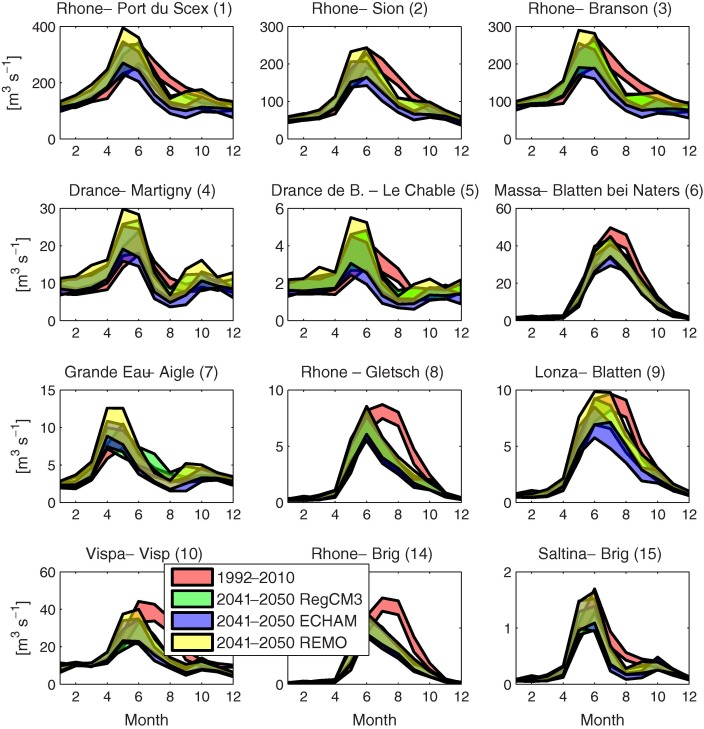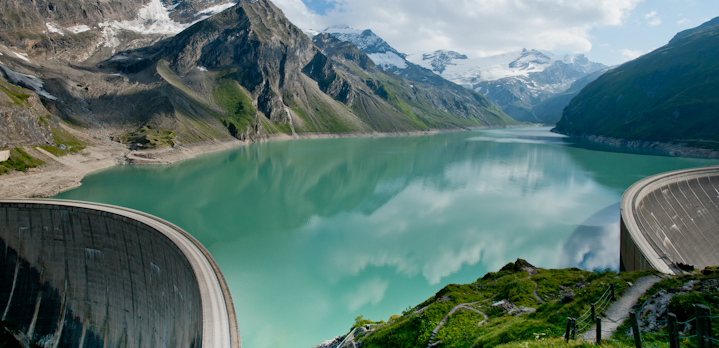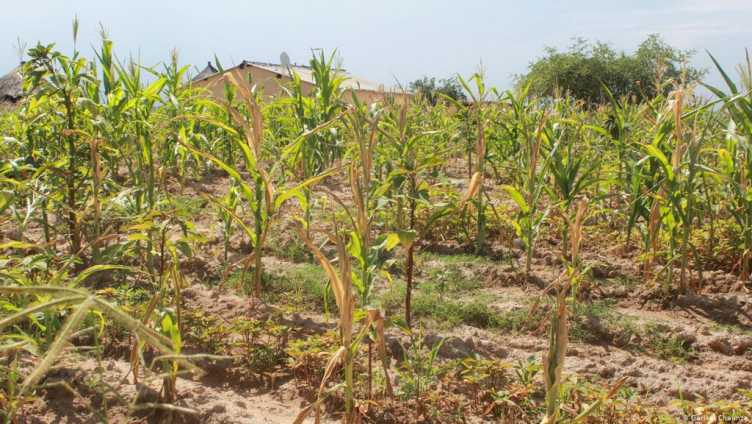Climate Change
Climate change impacts on hydrology and water resources is an underlying theme in many of the individual research projects that were undertaken at the Chair. In this section we list specific projects which address climate change impacts as their main focus: (a) the use of high resolution hydrological modelling for climate impact assessment in Alpine catchments, (b) the case of hydropower production under climate change in Switzerland, and (c) climate change effects on rainfed agriculture in Africa. The backbone of most of the climate change impact studies conducted by the Chair was quantifying uncertainty with stochastic weather generators.
Hydrological modelling of climate change in Alpine catchments

In our research we used climate change predictions together with high space (sub-km) and time (sub-daily) resolutions necessary for runoff predictions in Alpine catchments obtained through advanced downscaling techniques, physically-based hydrological modelling (Topkapi-ETH) to explictly include hydrological processes (soil moisture, evapotranspiration, snow accumulation and melt) that are spatially variable; and partitioning uncertainty in particular to include internal climate variability by the use of stochastic weather generators. In various projects we have demonstrated hydrological change with this methodology in the Rhone basin (EU-ACQWA project) and in Thur, Kl Emme, Maggia as part of the SNSF Hydro-CH2018 Project.
Projects:
ACQWA
HYDRO-CH2018
Climate change impacts on hydropower

Hydropower is a key electricity producer in Switzerland. Quantifying the effect of climate change on water availability and therefore on hydropower production and downstream river systems is an important research topic. In this research we developed an advanced modeling framework for the integrated simulation of the operation of hydropower plants, which accounts for climate-altered streamflow regimes, new demand and market conditions, as well as new boundary conditions for operation (e.g. aquatic ecosystem conservation). The modelling framework will allowde to address the question if existing reservoir operating rules are suitable to cope with the increased variability and dynamic conditions of water supply under climate change, or will the Swiss energy companies have to substantially revise them?
Projects:
SCCER-SoE
The future of rainfed agriculture in eastern Africa

Rainfed agriculture is a key sector in which the majority of world food is produced. In developing economies such as Ethiopia, the smallholder farming system, which accounts for about 95% of the cropland area in the country, produces crops mostly with rainfed agriculture. In this research we studied the inherent sensitivity of rainfed agriculuture to natural weather and climate variability, to pressure from changes in the amount and timing of rainfall and rising temperature due to climate change, thereby worsening poverty and food insecurity. This work aims to contribute to evidence-based adaptation planning, particularly to develop a framework for medium and long-term sub-national and national adaptation. The case study was centered on Ethiopia.
Projects:
Rain-Ag Ethiopia